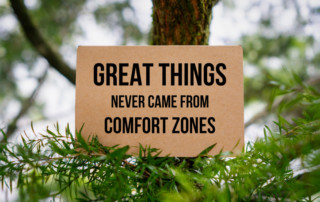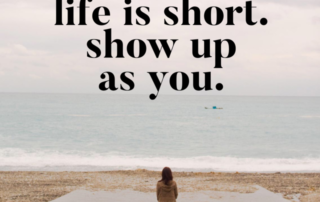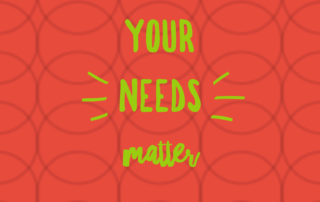Give yourself permission for Reciprocity
Give yourself permission for reciprocity. Make choices for your own self-preservation and self-care.
This time of year, reciprocity often takes a back seat. With so many people in need, it may seem selfish not to give – of our time, our money, our efforts, our service, etc.
Just for a moment, however, let’s put aside the needs of others, and turn the focus onto you.
I want you to think about what you long for in your day-to-day life. What’s missing in your relationships? Where are you settling for less than what you want, and less than what you know you deserve? Where are you hiding parts of yourself to be accepted, or loved, or just to keep the status quo?
In this moment, think about what “Reciprocity” means to you.
For context:
- I’m talking about reciprocity in relationships in this post. Relationships that are physically and mentally capable of meeting you where you are, and who have no disabilities prohibiting them from being in a conscious and mindful partnership with you.
- I’m not talking about reciprocity in terms of social responsibility or referring to people that are reliant on you, or who are literally incapable of offering mutuality in return
Here’s my definition of reciprocity:
- Reciprocity means both parties choose to be in connection, for mutual benefit, and they agree to the “terms” of the relationship. They’re making a conscious choice to be there and to show up as equal contributors – whether that’s a friend, a partner, a parent, or your adult children. They will offer respect, trust, integrity and express themselves in the most authentic version of themselves that they can, while also embodying compassion and empathy – for themselves and the other.
This is what I give, and what I want in relationship. So, I have an expectation that I can be real, honest, and direct – even emotionally messy -and I’ll be received. Because that’s our agreement.
I’m no longer willing to accept relationships that are based on anything less than that.
On Marriage…
- My husband and I are coming up on 30 years in March. And we’ve had a rocky road. Feels like 6 marriages within our 3-decade relationship because with each version of our marriage, we’ve come to a deeper level of understanding within ourselves and with each other.
- In essence, as we up-leveled, the version of our relationship that we had up to that point was extinguished and we began again.
On friendship…
- Another relationship that taught me true reciprocity is that of my very best friend on the planet, Lisa. Lisa and I have known each other since we were babies. Literally. Over the years, we had one clip of time where we weren’t in contact. I suppose we needed that space to do our own work to grow and heal and understand ourselves better. We needed to have our own life experiences so we could return stronger, more connected, and more aligned.
- When we reunited, we mutually agreed that we could show up as we were. Even if that meant it was messy, or not all put together.
- It meant raw, real, and completely uncensored. Brutally honest and authentic. But also, kind, compassionate and empathetic. Even if it wasn’t what we wanted to hear. We agreed to say what the other needed to hear.
My marriage and this friendship are what reciprocity means to me. Sometimes one person may have something come up in their lives where they need a little more support. But it’s always balanced out with equal time being given to each other throughout the relationship.
I’m reminded of “Chosen Family.”
We can’t choose the family we’re born into. But we can choose the family that brings out the best in us, that supports us, and that allows us to be ourselves.
I found this instagram post this morning by elephantjournal that expands on this.
On Self-worth and burnout…
- Reciprocity didn’t used to be so important to me. My worth used to be measured by how much I gave to others – at work, at home, with volunteering, and in my family and extended family – pretty much everywhere.
- There’s a saying – “How we do one thing is how we do everything.” And I saw my pattern to run full steam ahead with my selfless acts in multiple areas. I took responsibility for situations that weren’t mine to begin with.
- Then I burned out. I noticed certain relationships were tipping too far in one direction. I allowed my outdated core belief of “I don’t matter” to run the show. That belief had me take the backseat to my life, letting others get their needs met before me, often instead of me, and letting others take up space, which left me feeling isolated, empty, and resentful.
Reciprocity is NOT:
- Over-giving and feeling resentment
- Giving what we think we “should” (a word I’ve deleted from my vocabulary because “should” infers obligation, guilt and “have to” leaving us with zero choice)
- Giving because it’s what’s always been done.
On boundaries…
- I’m no longer willing to tolerate relationships that aren’t reciprocal. Where there’s only take and no give.
- I’m no longer willing to be the only one to make the effort to repair any disconnect that may have happened, when in the end, the relationship was not reciprocal to begin with.
Marshall Rosenberg, the founder of nonviolent communication, talks about giving in the context of willingness in his poem, “The Hungry Duck.” This poem basically says that we want to give from a place of willingness, like that of a child feeding a hungry duck. Because when we’re giving from any other place (obligation, have-to, resentment), we and others will pay a price.
So, circling back to the first questions I asked.
- What’s missing in your relationship(s)?
- Where are you allowing yourself to settle for less than what you want?
- Where are you settling for less than you deserve?
- Where are you hiding parts of yourself to be loved, accepted or to keep the status quo?
And I’ll add, what’s it going to take for you to put your own needs and self-care on your list?
Wishing you the courage and strength to no longer settle, no longer accept the unacceptable, and to bring yourself into alignment with your most authentic self that honors your needs, your boundaries and your own self-care.
With love,
Chris







